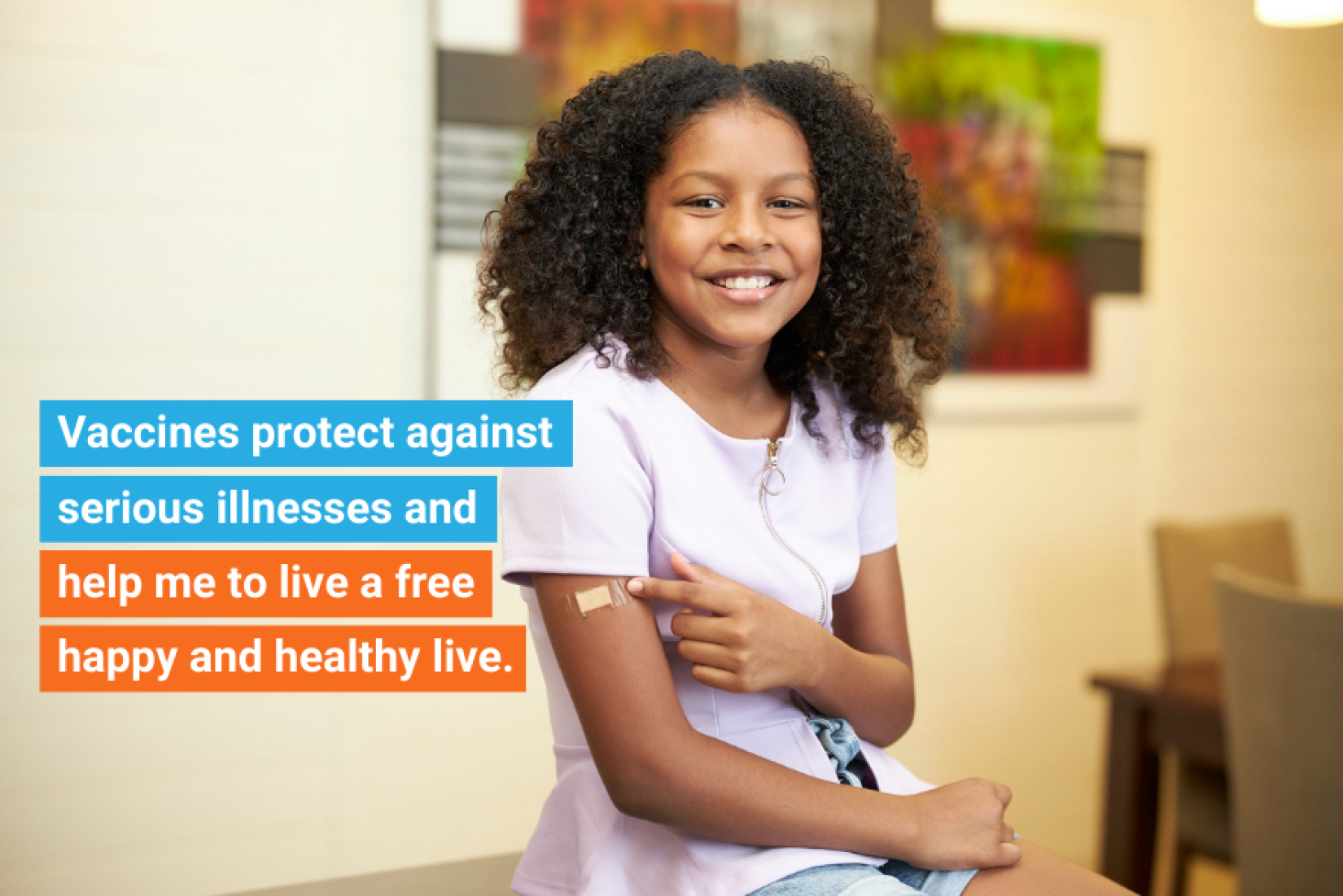World Immunization Week 2023- Get up to date, each vaccine counts!
24 April 2023

Many children in Suriname have missed childhood vaccines, risking their lives and health.
Paramaribo, 24 April 2023 – After 2 years of immunization backsliding caused by the COVID-19 pandemic disruptions, we must catch-up! We must restore and strengthen immunization services to reach all children missing out on the life-saving benefits of vaccines, and we must stop outbreaks from accelerating. The theme for this year’s World Immunization Week: “Get up-to-date, each vaccine counts”, is a call to all partners and communities to get back on track and ensure that all children are protected against vaccine preventable diseases, leaving no one behind.
Suriname annually reports vaccination coverages for key childhood vaccinations such as Pentavalent-3, Polio-3, and MMR-1. These vaccinations provide protection against preventable diseases such as: Tetanus, Diphtheria, Pertussis, HepatitisB, Polio, Measles, Mumps and Rubella. For the year 2022 the reported national coverages were: Pentavalent-3: 94%, Polio-3: 90%, MMR-1: 82%.
While these may seem like good numbers at the national level, large discrepancies still exist at subnational level between districts and communities. Coronie, Saramacca and Sipaliwini reported low vaccination coverages for Pentavalent-3 and Polio-3 ranging from 38% for Saramacca, 49% for Coronie and 73% for Sipaliwini.
Suriname’s national target is to achieve and maintain a 95% vaccination coverage rate to ensure that we are protected from outbreaks; however, data shows that Suriname has not reached this target for the routine childhood vaccinations. The past 3 years have shown less parents bringing children for their routine immunizations. As these children pass the age when vaccines are routinely given, they risk never catching up on their vaccinations. Under-vaccinated children are left more vulnerable to a range of vaccine-preventable diseases.
The low coverage and the devasting decline in vaccination rates do not only affect children, but also communities. Illnesses like diphtheria, measles, and polio, once thought controlled or eradicated in many countries in Latin America and the Caribbean, are making a comeback, putting the whole region’s well-being at risk. In Suriname, climate induced risks, such as flooding in the interior, are further exposing more communities to infectious diseases. Failure to protect children against diseases has dire consequences: some children die and many more live with lifelong disabilities.
“Now is the time to protect the health of every child in Suriname. When we do not vaccinate children, we risk their lives and health – as well as societies’ growth and development,” says Nicolas Pron, UNICEF Area Representative for Guyana and Suriname.
While the reasons leading to Suriname’s backslide are not yet fully understood, the decline may be driven by multiple factors; the vaccination program disruption caused by the COVID-19 pandemic, stay-at-home recommendations, and the fear of contracting the virus from health-care facilities led families to put off vaccinating children. Increased vaccine hesitancy also played a role in some populations due to misinformation. Furthermore, public spending on health has been uneven in recent years, reducing investment, leaving populations without access to quality care and vaccine stock-outs.
This setback calls on all stakeholders to intensify joint efforts. In order to vaccinate every child, it is vital to strengthen primary health care including front-line health providers such as the National Immunization Program, the Regional Health Services, and the Medical Mission; and to provide them with the resources and support they need.
Despite the limited national budget, basic health services -including immunization- must remain a priority because they do not only save lives, but also represent a proven strategy for reducing future health care costs and support lasting economic growth.
Currently UNICEF and PAHO are working jointly with the Government of Suriname and partners across the health sector to expand and improve routine immunization services and primary health care services. This is done through evidence generation, identification and prioritisation of marginalised communities, procurement of cold chain equipment, working with communities to address vaccine hesitancy and mobilising technical and financial resources.
On the occasion of the 2023 immunization week, UNICEF calls on the Government and all health partners to catch up on the backfall of children’s routine immunization in Suriname, in order that to ensure every child is protected from vaccine preventable diseases. The government must double-down on their commitment to increase financing for immunization, working closely with stakeholders to unlock available resources, implement and accelerate catch-up vaccination efforts to protect children and to prevent disease outbreaks.
“Vaccines have saved millions of children’s lives and will continue to save lives,” says Pron, “Action, through prioritized investments is critical to build back immunity, stop outbreaks and protect every child, in every community with essential vaccines.”


